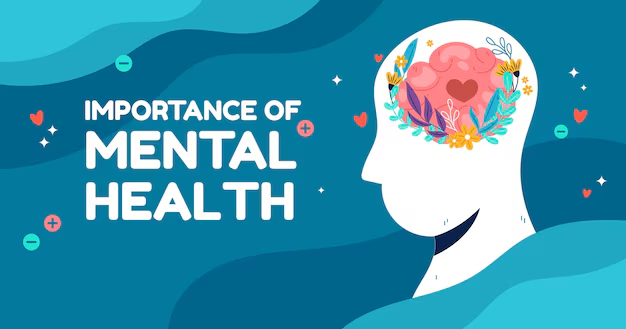Table of Contents

Introduction
(Benefits of Mental Health) an era where the pace of life is ever-quickening and distractions are as plentiful as stars in the sky, maintaining our mental health has become a pressing concern for many. One such tool that has withstood the test of time, yet is frequently overlooked, is journaling. This ancient practice, which involves the act of documenting our thoughts, feelings, and experiences, has been a trusted companion to some of history’s most renowned figures and is now gaining traction as a vital component of mental wellness. As we embark on a journey to explore the multifaceted benefits of journaling, we shall unravel the profound impact it can have on our emotional state, self-awareness, and overall mental health.
The Psychological Benefits of Journaling
Journaling has been touted for its myriad psychological benefits, acting as a sanctuary for our inner world and a catalyst for personal growth. Let’s delve into some of the most noteworthy advantages it offers.
1. The Sanctum of Emotional Expression
One of the cornerstone benefits of journaling is its capacity to serve as a conduit for emotional expression. In a world where verbalizing our feelings can be fraught with fear and self-doubt, the act of writing provides a secure and uncensored environment for us to lay bare our emotions. This is particularly poignant for those who find it challenging to articulate their feelings out loud, perhaps due to the fear of judgment or the sheer intensity of their emotions.(Benefits of Mental Health)
When we commit our feelings to paper, we are essentially creating a narrative of our inner lives. This cathartic process can help us disentangle ourselves from the grip of negative emotions, offering a sense of release and relief. Moreover, the act of translating emotions into words can assist in reducing emotional distress, as seen in various psychological studies. Writing about traumatic events or challenging times, such as a breakup, job loss, or the loss of a loved one, allows us to confront and process our grief, thereby fostering healing and closure.(Benefits of Mental Health)
2. The Oasis of Stress Reduction
Stress is an omnipresent phenomenon in modern society, affecting individuals from all walks of life. Journaling emerges as a potent antidote to this ubiquitous issue, serving as a reliable means to mitigate anxiety and stress levels. Research conducted by the American Psychological Association has demonstrated that expressive writing can significantly lower stress and anxiety. By giving voice to our fears and worries, we are effectively externalizing them, which can make them appear less daunting.
Through the act of journaling, we can achieve clarity and perspective on the issues that trouble us, thereby reducing their psychological weight. It is akin to shedding layers of an onion, peeling back the surface concerns to reveal the underlying core. This can help us navigate the complexities of life with greater ease and resilience. Additionally, journaling can act as a form of mindfulness, grounding us in the present moment and diverting our attention from the future’s uncertainties.(Benefits of Mental Health)
3. The Mirror of Self-Awareness
Another significant boon of journaling is its role in fostering self-awareness. As we regularly chronicle our thoughts and emotions, we are granted a unique opportunity to scrutinize our inner workings. This introspection can illuminate patterns of behavior and thought that may have eluded us previously. With heightened self-knowledge comes the ability to regulate our emotions more effectively and make informed decisions that align with our true selves.(Benefits of Mental Health)
By shining a light on our motivations, desires, and recurring themes in our lives, we can embark on a path of personal growth. Journaling can unearth patterns of negative self-talk or behaviors that undermine our mental health, allowing us to address them with conscious intent.
As we recognize these patterns, we can develop strategies to counteract them, leading to a more balanced and fulfilling life.(Benefits of Mental Health)By shining a light on our motivations, desires, and recurring themes in our lives, we can embark on a path of personal growth. Journaling can unearth patterns of negative self-talk or behaviors that undermine our mental health, allowing us to address them with conscious intent. As we recognize these patterns, we can develop strategies to counteract them, leading to a more balanced and fulfilling life.
4. The Workshop of Enhanced Problem-Solving
Journaling can also bolster our problem-solving capabilities by providing a structured approach to tackling life’s challenges. When faced with a conundrum, committing our thoughts and feelings to paper can help clarify our situation and offer new perspectives. By dissecting a problem into its constituent parts and exploring potential solutions through writing, we can arrive at more informed and considered decisions.
This process of written contemplation can instill a sense of empowerment and confidence in our ability to navigate through difficulties. It equips us with the tools to make choices that are both rational and aligned with our emotional landscape, leading to greater satisfaction and peace of mind.(Benefits of Mental Health)


Different Flavors of Journaling
Journaling is a versatile practice, with various forms catering to individual preferences and purposes. Let’s explore some of the most popular types:
1. Gratitude Journaling: The Elixir of Happiness
Gratitude journaling is a specific genre that revolves around documenting the aspects of our lives for which we are thankful. This practice has been shown to have a profound impact on mental health, with studies indicating that it can enhance happiness and diminish symptoms of depression.(Benefits of Mental Health)
By dedicating a few moments each day to reflect on what we appreciate, we can rewire our brains to focus on the positive. This intentional shift in perspective can lead to increased resilience and a more profound sense of well-being. Moreover, it encourages us to cherish the little things that often go unnoticed, thereby enriching our daily experiences.(Benefits of Mental Health)
2. Reflective Journaling: The Path to Self-Discovery
Reflective journaling involves writing about our daily experiences and emotional responses to them. This introspective practice promotes self-discovery and personal development by inviting us to scrutinize our thoughts, feelings, and actions.(Benefits of Mental Health)
For those undergoing significant life transitions or facing daunting challenges, reflective journaling can be a beacon of clarity. It allows us to process events and emotions, offering insight into our behaviors and reactions. This introspection can be incredibly beneficial in guiding us through tumultuous times.
3. Bullet Journaling: The Art of Organized Thought
Bullet journaling is a method that intertwines the principles of traditional journaling with the art of planning and organization. It involves creating a visual representation of our thoughts, tasks, and goals, which can be incredibly helpful for individuals seeking to manage their time and reduce feelings of overwhelm.(Benefits of Mental Health)
By visually mapping out our aspirations and responsibilities, we can cultivate a sense of order and control over our lives. This can lead to improved productivity and mental clarity, as we are no longer at the mercy of a cluttered mind.(Benefits of Mental Health)
4. Art Journaling: The Union of Creativity and Emotion
Art journaling is an innovative approach that combines the expressive powers of art with the therapeutic act of writing. It provides a platform for those who may find traditional journaling intimidating or limiting to express themselves through various artistic mediums, such as drawing, painting, or collaging.
Engaging in creative endeavors has been shown to boost mood and induce relaxation, making art journaling a particularly potent tool for mental well-being. It allows for a multidimensional exploration of our thoughts and feelings, offering an alternative means of self-expression that can be both liberating and healing.(Benefits of Mental Health)
Mastering the Craft of Journaling
While the rewards of journaling are manifold, starting and maintaining a consistent practice can be challenging. Here are some practical tips to help you harness its power:
1. Select Your Preferred Canvas
Choose a medium that resonates with you, whether it be a classic notebook or a digital platform. The key is to find something that feels comfortable and inviting, as this will encourage regular use.(Benefits of Mental Health)
2. Establish a Regular Routine
Consistency is the cornerstone of an effective journaling practice. Integrate it into your daily life by setting aside a specific time for writing, such as before bed or during a morning ritual.
3. Free Your Mind from the Shackles of Judgment
Allow your thoughts and feelings to flow freely without the constraints of grammar, syntax, or structure. The essence of journaling is authentic self-expression, so let go of any inhibitions and simply write from the heart.(Benefits of Mental Health)
4. Employ Prompts to Ignite Inspiration
If you find yourself at a loss for words, employ journaling prompts to spark reflection. These can be simple questions or statements that guide your writing, such as “What was the most meaningful moment of my day?” or “What am I feeling in this moment?”(Benefits of Mental Health)
5. Maintain Your Journal’s Sanctity
Journaling is an intimate act, so it’s essential to keep your thoughts private. Knowing that your thoughts are for your eyes only can foster a sense of security and encourage more profound honesty in your writing.(Benefits of Mental Health)

Overcoming Common Journaling Hurdles
While the allure of journaling is undeniable, many encounter barriers when attempting to incorporate it into their lives. Here are strategies to surmount these challenges:
Fear of Judgment or Criticism:
It’s natural to worry about how others might perceive our innermost thoughts. However, it’s crucial to remember that journaling is a deeply personal endeavor. The goal is to express yourself without the fear of external evaluation.(Benefits of Mental Health)
Feeling Overwhelmed by the Process:
Journaling does not have to be an extensive or time-consuming practice. Begin with small, manageable entries, and gradually increase their length as you become more comfortable. Sometimes, a few sentences or bullet points can be just as effective as several pages.(Benefits of Mental Health)
Lack of Time or Motivation:
Incorporating journaling into your daily routine can help overcome these hurdles. Allocate a specific time for writing, and consider using a timer to maintain focus and commitment. Starting small and building momentum can lead to a more enduring practice.(Benefits of Mental Health)
Conclusion
In the quest for mental well-being, journaling stands as a beacon of hope, offering a simple yet profound way to navigate the complexities of our inner lives. Whether you’re seeking a means to express your emotions, reduce stress, gain self-awareness, or enhance problem-solving skills, this ancient practice has much to offer. By committing to a regular journaling routine, you are investing in your mental health and embracing a path toward greater emotional resilience and personal growth. So, pick up your pen, or power up your device, and begin the journey of self-discovery and healing that lies within the pages of your very own journal.(Benefits of Mental Health)